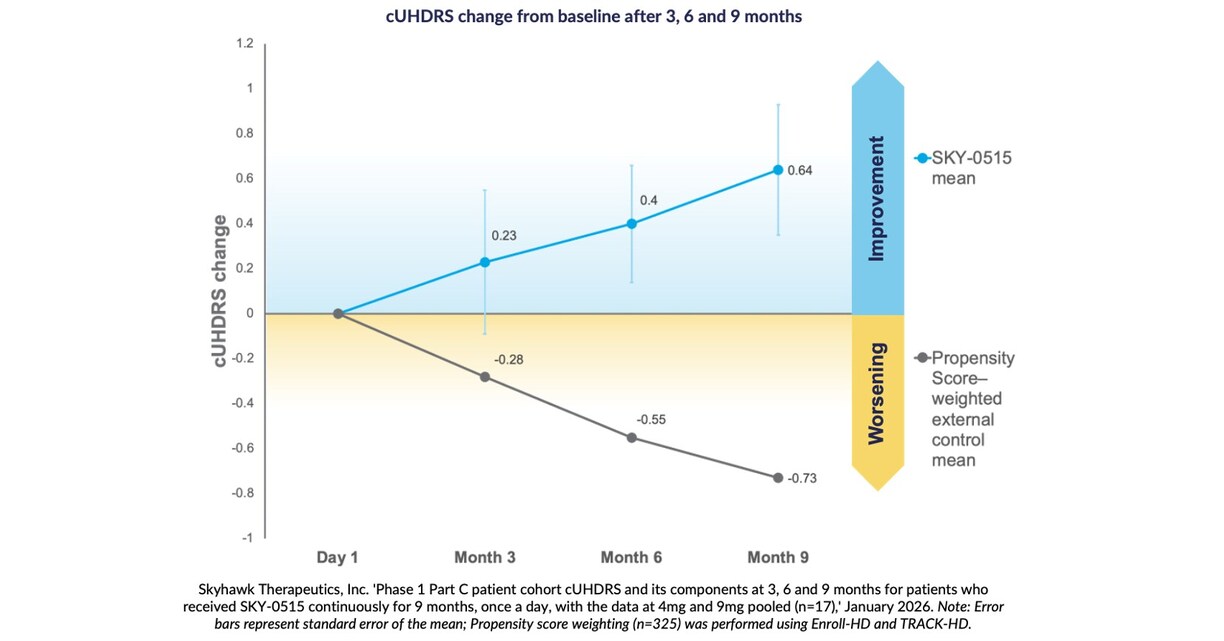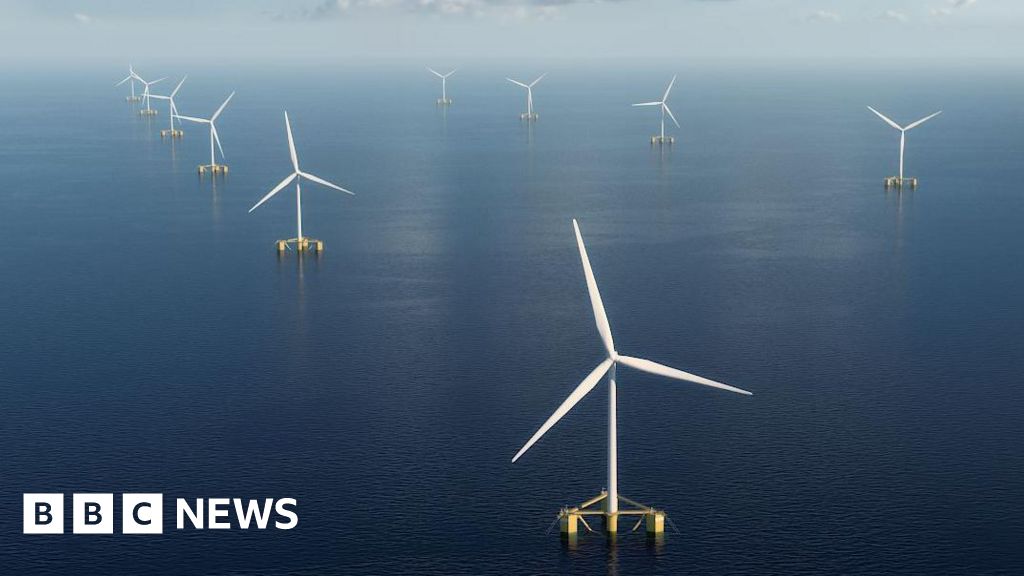Introduction
Vitiligo is a common autoimmune pigmentary disorder characterized by well-defined depigmented patches affecting the skin and mucous membranes. It can occur at any age, with a global prevalence of approximately 0.5%–1%.1 Based on clinical manifestations, vitiligo is classified into four major types: segmental vitiligo (SV), non-segmental vitiligo (NSV), mixed vitiligo, and indeterminate vitiligo. NSV encompasses several subtypes, including disseminated, generalized, facial–cervical, acral, and mucosal forms. Disease progression is commonly divided into active and stable phases.2 Childhood vitiligo (CV) is defined as vitiligo with onset before the age of 12 years and accounts for approximately 32–40% of all vitiligo cases.3 The epidemiology, clinical characteristics, associated comorbidities, and therapeutic strategies of CV differ significantly from those of adult-onset vitiligo. Previous studies have shown that children with NSV are at increased risk of developing other autoimmune-related conditions, particularly thyroid disorders, allergic diseases, and atopic dermatitis.4 Although vitiligo does not affect life expectancy, its pronounced cosmetic impact should not be underestimated. In modern family structures, where children often play a central role, vitiligo can substantially affect a child’s physical development, psychological well-being, self-esteem, and quality of life.5 Moreover, the disease exerts a considerable psychosocial burden on family members, significantly influencing their social interactions and emotional health.6
Topical corticosteroids, topical calcineurin inhibitors, and narrowband UVB (NB-UVB) are the most commonly used and safe treatments for CV.7 While topical corticosteroids (TCS) are effective in the treatment of CV, their long-term use—particularly of high-potency formulations—is associated with an increased risk of local adverse effects, including cutaneous atrophy, telangiectasia, and hypertrichosis, as well as potential systemic effects such as growth suppression and hypothalamic–pituitary–adrenal axis dysfunction. Pimecrolimus cream, a topical calcineurin inhibitor, improves vitiligo by suppressing inflammatory cytokine release and reducing antigen-presenting cell activity.8 This cream demonstrates comparable efficacy to TCS without its adverse effects,9 offering promising prospects for CV treatment.
Crisaborole ointment is a phosphodiesterase-4 (PDE-4) inhibitor.10 PDE-4 inhibition leads to activation of the cyclic adenosine monophosphate (cAMP) signaling pathway, thereby suppressing Th1-mediated immune responses and interleukin-17 (IL-17)–producing T helper cells, resulting in anti-inflammatory effects. In addition, activation of the cAMP pathway promotes melanogenesis and stimulates melanocyte proliferation and differentiation.11,12 Based on these biological mechanisms, several studies have demonstrated the therapeutic potential of crisaborole in the treatment of vitiligo.13,14
Currently available phototherapy modalities for vitiligo include ultraviolet A (UVA), psoralen plus UVA (PUVA), ultraviolet B (UVB), narrowband UVB (NB-UVB), and 308-nm excimer light. Among these, 308-nm excimer light allows for precise, targeted irradiation of vitiligo lesions, offering distinct advantages such as high therapeutic efficacy, rapid clinical response, and minimal exposure of surrounding healthy skin. The therapeutic effects of phototherapy are primarily mediated through suppression of local lymphocyte proliferation, reduction of pro-inflammatory cytokine production, modulation of aberrant immune responses, and subsequent improvement of depigmented lesions.15 Moreover, studies have demonstrated that 308-nm excimer laser irradiation induces a greater accumulation of cyclobutane pyrimidine dimers (CPDs) within the deeper regions of hair follicles, while simultaneously accelerating CPD clearance in the epidermis and reducing keratinocyte apoptosis, thereby effectively activating melanocyte lineage cells.16 In a NB-UVB phototherapy study, no statistically significant differences were observed between pediatric and adult patients with respect to treatment dose, duration, or total number of sessions. Notably, children exhibited a lower incidence of adverse reactions, further supporting the safety and effectiveness of phototherapy in the management of pediatric vitiligo.17
Multiple studies have demonstrated that the combination of phototherapy with topical pharmacologic agents significantly enhances local treatment efficacy while maintaining a favorable safety profile.18–20 Based on the above evidence, pimecrolimus cream, crisaborole ointment, and 308-nm excimer laser therapy each demonstrate therapeutic efficacy in vitiligo. It is therefore hypothesized that their combined application may achieve superior clinical outcomes compared with monotherapy. However, current clinical data on the efficacy and safety of crisaborole ointment combined with pimecrolimus cream in non-segmental CV remain limited. Therefore, this retrospective study aimed to evaluate the efficacy, safety, repigmentation patterns, and adverse reactions of combining these two topical agents with 308-nm excimer light in patients with non-segmental CV treated at our hospital.
Materials and Methods
Clinical Data
This study retrospectively included 120 children with NSV who visited the Department of Dermatology at the Second Affiliated Hospital of Wenzhou Medical University, China from January 2023 to December 2023. The study complies with the Declaration of Helsinki and was approved by the Ethics Committees of the Second Affiliated Hospital of Wenzhou Medical University and Yuying Children’s Hospital (2025-K-23-02). The guardians of all enrolled children provided written informed consent for the use of treatment-related images and clinical data for medical research and publication, with appropriate measures implemented to ensure patient privacy and data confidentiality. All patients underwent standardized pre-treatment photographic documentation, including natural-light photography and Wood’s lamp examination in a darkroom, as well as dermoscopic evaluation. Baseline clinical information, including age, age at disease onset, primary clinical manifestations, lesion distribution, disease activity, and prior treatment history, was systematically collected to characterize patient profiles (Figures 1 and 2).
|
Figure 1 Non-segmental CV patients. (A–D) Face & Neck. (E–F) Trunk. (G) Extremities. (H) Acral limbs.
|
 |
Figure 2 Technical roadmap.
|
Inclusion Criteria: 1. Meets the diagnostic criteria for NSV in the 2021 Consensus on Vitiligo Diagnosis and Treatment,2 with a lesion area less than 10%; 2. Age between 2 and 12 years; 3. Completed at least 12 weeks ofregular treatment (or fewer than 12 treatment sessions but has achieved remission); 4. No other systemic treatments received within one month prior to treatment.
Exclusion Criteria: 1. Patients who completed fewer than 12 treatment sessions, requested discontinuation during the study, or had incomplete clinical data documentation; 2. Patients with concomitant severe medical conditions; 3. Patients taking immunosuppressants or other photosensitizing medications.
Clinical staging based on the Vitiligo Disease Activity (VIDA):21 1. New onset within the past 6 weeks: score 4; 2. New onset within the past 3 months: score 3; 3. New onset within the past 6 months: score 2; 4. Onset within the past year: score 1; 5. Stable for at least 1 year: score 0; 6. Stable for at least 1 year with spontaneous repigmentation: score −1. A score >1 indicates active disease, while scores ≤1 indicate stable disease. A total of 96 cases were classified as active disease, and 24 cases as stable disease. Skin phototypes were determined according to the Fitzpatrick classification.22
Methods
Primary Instruments
308-nm Excimer Ultraviolet Light Therapy Device (Chongqing Demar Optoelectronic Technology Co., Ltd), Dermoscopy Image Processing Workstation (Beijing Demate Jiekang Technology Development Co., Ltd), and NR10QC Color Difference Meter (Sanenshi, Shenzhen, China).
Groups
Groups were assigned as follows: Group 1 received 308-nm excimer light combined with pimecrolimus cream (Ainingda, MEDA Manufacturing, 1% concentration); Group 2 received 308-nm excimer light combined with crisaborole ointment (Sutameng, Pharmacia and Upjohn Company LLC, 2% concentration); Group 3 received 308-nm excimer light alone (control group).
308-nm Excimer Light Treatment
Irradiation was administered once weekly. Prior to the first treatment session, the MED was determined on the abdominal skin. Erythema at the test site was evaluated 24 hours after irradiation, and the MED was established based on the erythema response duration. Following the initial irradiation, the erythema response of the treated vitiligo lesions was carefully monitored. Subsequent irradiation doses were adjusted according to the following criteria: if no erythema occurred or if erythema resolved within 24 hours, the previous dose was increased by 50 mJ/cm2; if erythema resolved between 24 and 48 hours, the dose was maintained for the next session; and if erythema persisted for more than 48 hours, or if marked erythema or blistering developed, treatment was temporarily suspended until complete resolution of the reaction, after which irradiation was resumed at an adjusted dose. During treatment, customized light shields were trimmed to conform to the shape of each child’s vitiligo lesions, thereby protecting adjacent uninvolved skin. The treatment head was maintained in close contact with the lesion surface throughout irradiation to ensure uniform and accurate energy delivery.
Topical Medication Use
Topical medication was discontinued on the day of 308-nm excimer light therapy. If no clinically significant adverse reactions occurred, medication was resumed the following day and applied twice daily. In the event of adverse reactions, such as blistering or burning pain, medication was withheld until symptom resolution or substantial improvement, after which it was reinitiated.
Efficacy Evaluation and Depigmentation Pattern Assessment Method
Evaluation of Treatment Efficacy for Vitiligo: Efficacy evaluations were conducted at 4 weeks, 8 weeks, and 12 weeks post-treatment. Photographs of the pediatric patient’s vitiligo lesions were taken under a Wood’s lamp in a darkroom. Additionally, photographs were taken with a steel ruler (minimum scale of 1 mm) placed around the lesions as a reference scale. ImageJ was used to assess changes in lesion area. Images with the steel ruler were imported into ImageJ. The ruler scale was set using the Line tool, and the Freehand Selection tool was used to outline the lesion boundaries. The required areas were measured (pre-treatment area denoted as S0; areas at 4 weeks, 8 weeks, and 12 weeks denoted as S1, S2, and S3, respectively) (Figure 3). Percentage reduction in lesion area was calculated as: (S0-S1)/S0 × 100%, (S0-S2)/S0 × 100%, (S0-S3)/S0 × 100%, rounded to one decimal place. Specific efficacy criteria based on vitiligo changes and (S0-S3)/S0×100% values: 1. Ineffective: Enlarged vitiligo area or no repigmentation. 2. Minimally effective: Partial reduction in vitiligo area or appearance of brownish-dark spots (<50%). 3. Beneficial: 50–95% (inclusive of 50%, exclusive of 95%) reduction in affected area. 4. Remarkable: the total disappearance of the affected area or a reduction of ≥95%. Efficacy rate = (Remarkable + Beneficial) / Total cases × 100%.
 |
Figure 3 Outlining lesion perimeters using ImageJ.
|
Color Difference Meter for Evaluating Color Changes in Vitiligo Lesions: Pre-treatment, the color difference meter measures the difference in red-green axis values (ΔL*) between the vitiligo lesion surface and surrounding normal skin (or symmetrical areas), denoted as ΔL*0 (randomly select 4 points each from the vitiligo lesion and normal skin, calculate the average, rounded to one decimal place). At 4 weeks, 8 weeks, and 12 weeks post-treatment, measurements are taken using the same method to obtain ΔL*1, ΔL*2, and ΔL*3. Color changes before and after treatment are expressed as percentage of color fading: (ΔL*0 – ΔL*1) / ΔL*0 × 100%, (ΔL*0 – ΔL*2) / ΔL*0 × 100%, (ΔL*0 – ΔL*3) / ΔL*0 × 100%, each rounded to one decimal place. Specific efficacy assessment criteria based on the values of (ΔL*0 – ΔL*3) / ΔL*0 × 100% and lesion changes: 1. Ineffective: ≤0% or enlargement of depigmented area; 2. Minimally effective: Between 0% and 50% (excluding 0% and 50%); 3. Beneficial: 50–95% (includes 50%, excludes 95%). 4. Remarkable: ≥95%. Efficacy rate = (Remarkable + Beneficial)/ Total cases × 100%.
Criteria for Determining Repigmentation Pattern: Researchers visually examine and utilize dermatoscopy to observe repigmentation patterns. Patterns are categorized as follows:
1. Perifollicular type: Pigmented islands centered around hair follicles appear within the depigmented area; 2. Marginal type: The edges of the depigmented area begin to contract, gradually shrinking in size while pigmentation develops toward the center; 3. Diffuse type: The entire depigmented area regains uniform color without distinct pigmented islands or bands; 4. Hybrid type: Any combination of two or more of the preceding three repigmentation patterns. Pigmentation at the periphery of the lesion spreads toward the center while central pigment islands also expand outward (Figure 4).
 |
Figure 4 Four repigmentation patterns in vitiligo. (A) Perifollicular. (B) Marginal. (C) Diffuse. (D) Hybrid.
|
Statistical Methods
Statistical analysis was performed using SPSS version 26.0 for Windows. Quantitative data are expressed as mean ± standard deviation (x ± s). Intergroup comparisons were conducted using analysis of variance. Qualitative data are presented as case numbers (n) and percentages (%). Intergroup comparisons were performed using the chi-square (χ2) test. A P-value < 0.05 was considered statistically significant. For pairwise comparisons among the three groups, the Bonferroni correction was applied to adjust P-values. The adjusted significance level was set at P=0.05/3=0.0167, with P<0.0167 indicating statistically significant differences.
Results
Clinical Efficacy (Response Rate) Observation Comparison
A total of 120 pediatric patients were enrolled. Group 1 comprised 39 patients, including 20 males and 19 females, with a mean age of (7.02 ± 2.43) years and a mean disease duration of (6.33 ± 2.75) months. A total of 82 skin lesions were documented: 37 on the face and neck, 23 on the trunk, 17 on the extremities, and 5 on the acral limbs. Group 2 comprised 39 patients: 21 males and 18 females, with a mean age of (7.44 ± 2.57) years and mean disease duration of (6.54 ± 2.68) months. A total of 78 lesions were recorded: 33 on the face and neck, 26 on the trunk, 15 on the extremities, and 4 on the acral limbs. The control group comprised 42 pediatric patients: 21 males and 21 females. The mean age was (7.26 ± 2.62) years, with a mean disease duration of (6.14 ± 2.93) months. A total of 84 lesions were observed: 38 on the face and neck, 26 on the trunk, 14 on the extremities, and 6 on the acral limbs (Table 1). There was no statistically significant difference between the three groups regarding gender, age, disease duration, number and distribution of lesions, and disease activity (P > 0.05).
 |
Table 1 Patient Baseline Characteristics
|
After 4 weeks of treatment, the response rates for Group 1, Group 2, and the control group were 34.1%, 32.1%, and 23.8%, respectively, with no statistically significant difference observed (P > 0.05). After 8 weeks of treatment, the response rates increased to 63.4%, 60.2%, and 42.8%, respectively, demonstrating a statistically significant difference among groups (P < 0.05). Following 12 weeks of treatment, the response rates for Group 1, Group 2, and the control group further increased to 76.8%, 71.7%, and 54.8%, respectively, with statistically significant differences maintained (P < 0.05) (Table 2 and Figure 5). Additionally, we conducted pairwise comparisons among the three groups. After 8 weeks of treatment, the difference between the Group 1 and the control group was statistically significant. (P < 0.0167). No statistically significant difference was observed between Group 2 and the control group (P > 0.0167), nor between Group 1 and Group 2 (P > 0.0167). After 12 weeks of treatment, the difference between Group 1 and the control group was statistically significant (P < 0.0167). The difference between Group 2 and the control group was not statistically significant (P > 0.0167). The difference between Group 1 and Group 2 was not statistically significant (P > 0.0167). The results indicate that both pimecrolimus cream and crisaborole ointment combined with phototherapy demonstrated higher efficacy rates than phototherapy alone. Although Group 1 consistently showed higher efficacy rates than Group 2 throughout the entire treatment period, the difference in efficacy between Groups 1 and 2 was not statistically significant.
 |
Table 2 The Therapeutic Effects of the Three Groups of Patients Were Compared After 4, 8 and 12 Weeks of Treatment
|
 |
Figure 5 Lesion presentation in a pediatric NSV case deemed treatment-responsive. (A–D) Pre-treatment (Week 0). (A) Under natural light. (B) Wood’s lamp. (C and D) Dermatoscopy. (E–H) Week 4 of treatment. (E) Under natural light. (F) Wood’s lamp. (G and H) Dermatoscopy. (I-L) Week 8 of treatment. (I) Under natural light. (J) Wood’s lamp. (K and L) Dermatoscopy. (M–P) Week 12 of treatment. (M) Under natural light. (N) Wood’s lamp. (O and P) Dermatoscopy.
|
Comparison of Clinical Adverse Reaction Rates
Adverse reactions were monitored throughout the treatment period. In Group 1, a total of 82 lesions were treated, of which 13 lesions developed pruritus, 5 lesions experienced burning pain, and 6 lesions developed blisters, resulting in an overall adverse reaction rate of 29.3%. In Group 2, 78 lesions were evaluated; among these, 11 lesions developed pruritus, 11 lesions experienced burning pain, and 5 lesions developed vesicles, corresponding to an adverse reaction rate of 34.6%. In the control group, 84 lesions were treated, with 9 lesions developing pruritus, 3 lesions experiencing burning pain, and 4 lesions developing blisters, yielding an adverse reaction rate of 19.0%. Patients who developed blisters temporarily discontinued topical medication and resumed treatment after complete resolution of the lesions. All other adverse reactions were mild, well tolerated, and resolved spontaneously within 24–48 hours. Although the incidence of adverse reactions was highest in Group 2, followed by Group 1 and the control group, the differences among the three groups were not statistically significant (P > 0.05) (Table 3).
 |
Table 3 Comparison of Adverse Reaction Rates Among the Three Groups of Patients [n,(%)]
|
Comparative Analysis of Recoloring Modes for Different Body Parts
A total of 108 lesions were identified on the face and neck, with repigmentation patterns distributed as follows: 45 marginal, 32 perifollicular, 19 diffuse, and 12 hybrid. The trunk region comprised 75 lesions, with 18 marginal, 34 perifollicular, 10 diffuse, and 13 hybrid patterns observed. On the extremities, 46 lesions were documented, including 8 marginal, 22 perifollicular, 6 diffuse, and 10 hybrid patterns. The acral limbs exhibited 15 lesions, with 9 marginal, 1 perifollicular, 2 diffuse, and 3 hybrid patterns (Table 4). The results indicated that the marginal repigmentation pattern predominated in the face and neck, followed by the perifollicular pattern, whereas diffuse and hybrid patterns were less frequently observed. In the trunk and extremities, the perifollicular pattern was the most prevalent, followed by marginal, hybrid, and diffuse patterns. In the acral limbs, the marginal pattern was the most common, while perifollicular, hybrid, and diffuse patterns occurred less frequently. Statistically significant differences in repigmentation patterns were observed among different anatomical regions, including the face/neck, trunk, extremities, and acral areas (P < 0.05). In contrast, no statistically significant differences in repigmentation patterns were detected among the three treatment groups (P > 0.05). Additionally, during the repigmentation process, peripheral skin pigmentation within treated lesions frequently became darker than the surrounding normal skin in exposed areas across all pediatric patients.
 |
Table 4 Comparative Analysis of Repigmentation Patterns in Different Parts [n,(%)]
|
Comparative Analysis of Clinical Efficacy Across Different Body Regions
After 12 weeks of treatment, the face and neck region comprised 108 lesions, including 17 Minimally effective, 46 Beneficial, and 45 Remarkable cases, yielding an overall efficacy rate of 84.2%. The trunk included 75 lesions, of which 25 were Minimally effective, 43 were Beneficial, and 7 were Remarkable, resulting in an efficacy rate of 66.7%. The extremities presented 46 lesions, with 26 Minimally effective, 18 Beneficial, and 2 Remarkable, corresponding to an efficacy rate of 43.4%. The acral limbs comprised 15 lesions, including 11 Minimally effective and 4 Beneficial cases, with an efficacy rate of 26.7%. Overall, treatment efficacy differed significantly among anatomical regions, following the order: face and neck > trunk > extremities > acral limbs. Statistically significant differences in clinical efficacy were observed across different body regions (P < 0.05) (Table 5).
 |
Table 5 Comparison of the Therapeutic Effects of Skin Lesions in Different Parts [n,(%)]
|
Univariate and Multivariate Logistic Regression Analysis of 8-Week Therapeutic Effect
As shown in Table 6, univariate analysis demonstrated that sex, disease activity, and treatment modality were significantly associated with therapeutic response. After variables with P < 0.05 were entered into the multivariate analysis, disease activity (OR = 2.698, P = 0.003), Group 1 (OR = 2.645, P = 0.004), Group 2 (OR = 2.265, P = 0.015), and sex (OR = 0.563, P = 0.038) remained independently and significantly associated with treatment efficacy.
 |
Table 6 Univariate and Multivariate Analyses Related to 8-Week Treatment
|
Univariate and Multivariate Logistic Regression Analysis of 12-Week Therapeutic Effect
As shown in Table 7, univariate analysis indicated that sex, disease activity, Fitzpatrick skin classification, and treatment modality were significantly associated with therapeutic response. After variables with P < 0.05 were included in the multivariate analysis, disease activity (OR = 2.570, P = 0.005), Group 1 (OR = 3.137, P = 0.001), and Group 2 (OR = 2.400, P = 0.013) remained independently and significantly associated with treatment efficacy.
 |
Table 7 Univariate and Multivariate Analyses Related to 12-Week Treatment
|
Discussion
This retrospective study evaluated the therapeutic efficacy of different treatment modalities in 120 pediatric patients with NSV. At present, clinical assessment of repigmentation in vitiligo largely depends on physicians’ visual estimation of depigmented lesion size, which, although rapid, convenient, and cost-effective, is subjective and limited by interobserver variability. In contrast, the present study employed a comprehensive evaluation strategy integrating dermatoscopy, ImageJ analysis, Wood’s lamp examination, and a color difference meter to assess treatment outcomes. Compared with conventional methods such as color extraction using Photoshop or manual grid-based area calculation, this multimodal assessment approach is more efficient and practical. Moreover, it enables continuous, standardized, and fully documented data acquisition throughout the treatment course, thereby enhancing objectivity, reproducibility, and clinical applicability in vitiligo research.
With the assistance of dermatoscopy, this study observed and statistically analyzed the repigmentation patterns in vitiligo patients. Significant differences were noted in repigmentation patterns and clinical efficacy across different body regions. Previous studies have reported that repigmentation in vitiligo typically initiates at hair follicle openings and spreads peripherally, whereas hairless, smooth skin areas are difficult to repigment.23 This observation was further supported by the subsequent discovery of follicular melanocyte stem cells, a reservoir of melanocytes and their niche located in the lower permanent hair follicle, which explains the greater repigmentation potential in hair-rich areas.24 Marginal repigmentation refers to the contraction of depigmented areas from the periphery toward the center, potentially mediated by the presence of functional melanocyte pools within the epidermis at the lesion margins.23 Diffuse repigmentation, characterized by uniform color restoration across the entire vitiligo patch, may involve melanocyte precursors between dermal follicles or epidermal melanocytes reactivated via dopa metabolism within the follicular space, both of which reside at the center of vitiligo lesions.25 Based on these distinct repigmentation patterns, this study employs dermatoscopy as an examination tool to magnify lesions, enabling further observation of lesion distribution and changes. This facilitates improved assessment and prediction of treatment efficacy.
ImageJ has been widely applied in evaluating the efficacy of vitiligo treatments.26 In this study, for patients with repigmentation patterns classified as marginal, perifollicular, or hybrid, we manually selected the affected areas under Wood’s lamp illumination to measure their sizes. The reduction in vitiligo patch areas was digitally recorded, a method recognized for its accuracy and stability.27 However, for vitiligo patients with diffuse repigmentation patterns, relying solely on area changes to assess treatment efficacy is inaccurate. Previous studies have found that color changes precede area reduction in patients with diffuse repigmentation.28 Therefore, we additionally employed a color difference meter to precisely evaluate disease progression and treatment response, thereby guiding subsequent therapeutic strategies.
At present, a wide range of therapeutic options are available for vitiligo; however, treatment efficacy varies considerably among pediatric patients. For patients with CV, both safety and therapeutic effectiveness are critical considerations in treatment selection.3 The 308-nm excimer light is a high-energy, targeted phototherapy modality derived from narrowband ultraviolet light, offering distinct advantages including strong tissue penetration, high lesion selectivity, and precise localized treatment. Adverse reactions associated with this therapy are generally mild and transient, most commonly including erythema, pruritus, and skin dryness. Importantly, 308-nm excimer light therapy provides an additional practical advantage in pediatric patients, as children are not required to enter the relatively enclosed NB-UVB cabinet, thereby reducing treatment-related anxiety, fear, and feelings of isolation. Accordingly, 308-nm excimer light was selected as the baseline control treatment modality for CV in the present study.
In this study, the efficacy rates of 308-nm excimer light combined with pimecrolimus cream and crisaborole ointment were 76.8% and 71.7%, respectively, whereas the efficacy rate of 308-nm excimer light monotherapy was 54.8%. Both combination therapy groups demonstrated significantly superior therapeutic efficacy compared with the monotherapy group. Previous studies by Jiang et al have reported that combination therapy yields better clinical outcomes than monotherapy, and the findings of the present study are consistent with these results.29 Additionally, regarding treatment sites, efficacy was observed in the following descending order: face, neck, trunk, extremities, and acral limbs. This finding is consistent with previous studies.30,31 Previous studies have also confirmed this point. It is believed that areas with higher hair follicle density (face and neck, limbs, trunk) respond more quickly to treatment, while areas with lower hair follicle density (back of hands and feet) respond more slowly to treatment. Depigmented areas with absent or low-density hair follicles (palms, soles) rarely respond to treatment.30
Furthermore, through logistic regression analysis, we found that children in the active disease were more likely to achieve effective outcomes. Previous studies have shown that for progressive vitiligo, early and active treatment is necessary to reduce irreversible damage to melanocytes. For stable vitiligo, treatment is needed to promote the proliferation and differentiation of melanocyte precursor cells in hair follicles or interfollicular areas to achieve pigment recovery.32,33 In this study, children in the active disease had a shorter disease duration than those in the stable disease, and their hair follicle melanocytes were not completely destroyed, thus they could achieve better outcomes.
Regarding adverse reactions, the most common side effect reported by patients using pimecrolimus cream was itching. During subsequent treatment, patients gradually adapted, experiencing almost no discomfort in later treatment sessions. In contrast, the most frequently reported adverse reactions for crisaborole cream were burning pain and itching, consistent with our clinical experience using this medication to treat pediatric atopic dermatitis patients. However, symptoms in pediatric patients were generally mild. Similarly, as patients adapted to the medication, these adverse reactions gradually diminished or resolved. During 308-nm excimer light therapy, the primary adverse reactions were itching and blistering. Itching was mostly transient, correlated with the duration of erythema, and improved as the erythema subsided. Blistering often resulted from too rapid an increase in light energy. Skin tolerance varies among patients. When adjusting irradiation energy, increasing exposure duration may inadvertently elevate energy levels excessively, potentially causing erythema and blisters persisting beyond 48 hours. This underscores the need for careful, gradual energy adjustments rather than hasty modifications.
This study also has certain limitations. This study did not conduct a power calculation, which may have resulted in a relatively small sample size. Additionally, the retrospective study period was not lengthy, thus presenting inherent limitations. Therefore, the results are hypothesis-generating rather than definitive evidence forpractice-changing recommendations. Second, due to the school-age characteristics of CV patients, the treatment frequency of once weekly with 308-nm excimer light was relatively low, which may have impacted efficacy. Third, retrospective studies are subject to selection bias and recall bias, necessitating prospective studies to validate these observations. Consequently, further research with larger population samples and more comprehensive data is required to clarify these findings and conduct more in-depth investigations. Fourth, this study employed telephone and outpatient follow-up methods, and the lack of statistical data on compliance represents one limitation of this experiment.
In summary, this study investigated the efficacy and safety of 308-nm excimer light combined with pimecrolimus cream and crisaborole ointment for treating non-segmental CV in pediatric patients. This approach enhances treatment efficacy with favorable safety profiles, mild adverse reactions that resolve rapidly with timely symptomatic management, and no significant systemic side effects. Given the multifaceted pathogenesis of vitiligo, novel targeted therapies continue to emerge as new mechanisms are elucidated. We must persist in exploration and advancement to discover more effective treatment strategies for this condition.
Conclusion
With increasing treatment duration, both the effective rate and repigmentation area of vitiligo lesions progressively increase. Combination therapy using 308-nm excimer light together with pimecrolimus cream and crisaborole ointment demonstrates favorable clinical efficacy in pediatric vitiligo, significantly improving both repigmentation rates and overall treatment effectiveness. Although the incidence of adverse reactions is higher with combination therapy, these events are predominantly mild, transient, and not associated with significant systemic adverse effects, indicating a favorable safety profile. Clinical efficacy varies among different anatomical regions, with response rates decreasing in the following order: face and neck > trunk > extremities > acral limbs. Repigmentation patterns also differ across these regions, reflecting distinct regional biological responses. The integrated use of dermatoscopy, a color difference meter, Wood’s lamp examination, and ImageJ analysis enables convenient, objective, and accurate digital documentation of changes in lesion color and area before and after treatment. Notably, in cases of diffuse repigmentation, alterations in pigmentation intensity precede measurable reductions in lesion area, allowing more sensitive evaluation of therapeutic response and facilitating optimization of subsequent treatment strategies.
Abbreviations
SV, segmental vitiligo; NSV, non-segmental vitiligo; CV, childhood vitiligo; TCS, topical corticosteroids; PDE-4, phosphodiesterase-4; cAMP, cyclic adenosine monophosphate; VIDA, Vitiligo Disease Activity; MED, minimal erythema dose.
Disclosure
The authors report no conflicts of interest in this work.
References
1. Christina B, Khaled E. Vitiligo: a Review. Dermatology. 2020;236(6). doi:10.1159/000506103
2. Lei TC, Xu AE, Gao TW, He L, Zhen ZZ. Consensus on the treatment of Vitiligo in China (2021 Revision). Int J Dermatol Venereol. 2021;4:10–15.
3. Electra N, Styliani M, Vassiliki T, Dimitrios R. Childhood vitiligo. Am J Clin Dermatol. 2019;20(4). doi:10.1007/s40257-019-00430-0
4. Electra N, Christina A, Alexandra M, et al. Childhood- and later-onset vitiligo have diverse epidemiologic and clinical characteristics. J Am Acad Dermatol. 2011;66(6). doi:10.1016/j.jaad.2011.07.010
5. Ana Paula Dornelles da Silva M, Magda Blessmann W, Aline Rodrigues da Silva N, Rita Langie P, Roberta Zaffari T, Tania Ferreira C. Assessing depression and anxiety in the caregivers of pediatric patients with chronic skin disorders. An Bras Dermatol. 2014;88(6). doi:10.1590/abd1806-4841.20131915
6. A AAA, Uwesu Omari M, Xing-Hua G, et al. Hidden victims of childhood vitiligo: impact on parents’ mental health and quality of life. Acta Derm Venereol. 2014;95(3). doi:10.2340/00015555-1940
7. Markus B, Adrian T. Vitiligo. J Dtsch Dermatol Ges. 2025;23(8). doi:10.1111/ddg.15706
8. S E, F B-S, C S, et al. The role of NF-AT transcription factors in T cell activation and differentiation. Biochim Biophys Acta. 2000;1498(1). doi:10.1016/s0167-4889(00)00082-3
9. Hassan S, Farshad F, Alireza F, Amir V-F, Najmeh-Sadaat A, Yahya D. Pimecrolimus cream in repigmentation of vitiligo. Dermatology. 2007;214(3). doi:10.1159/000099592
10. Gang L, Dengqin H, Xiaojia C, et al. Advances in the development of phosphodiesterase-4 inhibitors. Eur J Med Chem. 2023;250. 10.1016/j.ejmech.2023.115195.
11. Jusleen A, Jeremy U, Andrea W, Jenna B, Lawrence FE. Phosphodiesterase 4 inhibitor therapies for atopic dermatitis: progress and outlook. Drugs. 2017;77(13). doi:10.1007/s40265-017-0784-3
12. Jillian MR, Dinesh SB, Kingsley IE, et al. Keratinocyte-derived chemokines Orchestrate T-Cell positioning in the epidermis during Vitiligo and may serve as biomarkers of disease. J Invest Dermatol. 2016;137(2). doi:10.1016/j.jid.2016.09.016
13. Xiukun S, Anqi S, Ai-E X. Successful treatment of vitiligo with crisaborole ointment: a report of two cases. Br J Dermatol. 2023;188(3). doi:10.1093/bjd/ljac092
14. Idy T, Jared SK, David R. Repigmentation in a patient with vitiligo on crisaborole 2% ointment. JAAD Case Rep. 2021;11. doi:10.1016/j.jdcr.2021.03.028
15. Manoj Kumar T, Vinod Kumar S, Alpana S, Parthaprasad C, Somesh G. T helper and regulatory T cell cytokine profile in active, stable and narrow band ultraviolet B treated generalized vitiligo. Clin Chim Acta. 2013;424. doi:10.1016/j.cca.2013.05.005
16. Yoshiaki I, Saeko O, Yuki I, Hidehisa S, Yoko F. Excimer laser penetrates deeper into hair follicles and activates more melanocyte lineage cells than excimer light. J Nippon Med Sch. 2025;92(1). doi:10.1272/jnms.JNMS.2025_92-110
17. Magdaleno-Tapial J, Ortiz-Salvador JM, Valenzuela-Oñate C, et al. Comparison of phototherapy in pediatric and adult patients. Actas Dermosifiliogr. 2019;111(1). doi:10.1016/j.ad.2019.03.012
18. Khaled E, Viktoria E, Maxine W, Nanja V. Vitiligo. Lancet. 2015;386(9988). doi:10.1016/s0140-6736(14)60763-7
19. Liping L, Jinhua H, Chuhan F, et al. The efficacy of combined phototherapy with topical therapy in vitiligo: a network meta-analysis. J DermatolTreat. 2025;36(1). doi:10.1080/09546634.2025.2483808
20. Javier P-B, Ruth C-M, Jorge N-R, Gonzalo S-M. Vitiligo: pathogenesis and new and emerging treatments. Int J Mol Sci. 2023;24(24). doi:10.3390/ijms242417306
21. Asma K, Yassine K, Yosra A, et al. Serum inflammatory and oxidative stress markers in patients with vitiligo. J Clin Med. 2023;12(18). doi:10.3390/jcm12185861
22. Vishal G, Vinod Kumar S. Skin typing: fitzpatrick grading and others. Clin Dermatol. 2020;37(5). doi:10.1016/j.clindermatol.2019.07.010
23. Joseph Michael Y-F, David EF. Skin pigmentation and its control: from ultraviolet radiation to stem cells. Exp Dermatol. 2020;30(4). doi:10.1111/exd.14260
24. N EK, Misa S, Vivien I, et al. Key roles for transforming growth factor beta in melanocyte stem cell maintenance. Cell Stem Cell. 2010;6(2). doi:10.1016/j.stem.2009.12.010
25. Natsuko O, Takahiro A, Hisashi U, et al. A melanocyte–melanoma precursor niche in sweat glands of volar skin. Pigm Cell Melanoma Res. 2014;27(6). doi:10.1111/pcmr.12297
26. vG N, V D, V E, et al. Reference method for digital surface measurement of target lesions in vitiligo: a comparative analysis. Br J Dermatol. 2018;180(5). doi:10.1111/bjd.17190
27. Julien S, Alexandra D, Hervé M, et al. Efficacy and safety of tacrolimus 0.1% for the treatment of facial vitiligo: a multicenter randomized, double-blinded, vehicle-controlled study. J Invest Dermatol. 2021;141(7). doi:10.1016/j.jid.2020.12.028
28. Rafael F, Maria IB. Update on skin repigmentation therapies in vitiligo. Pigm Cell Melanoma Res. 2008;22(1). doi:10.1111/j.1755-148X.2008.00528.x
29. Tiande J, Wenting W. The efficacy of topical calcineurin inhibitor therapy for childhood vitiligo: a systematic review and meta-analysis of randomized controlled trials and prospective cohort studies. An Bras Dermatol. 2025;100(6). doi:10.1016/j.abd.2025.501230
30. Alauldin Khalef A, Nathalie D, Meltem O, Klaus F. Effectiveness of a 308-nm excimer laser in treatment of vitiligo: a review. Lasers Med Sci. 2012;28(3). doi:10.1007/s10103-012-1185-1
31. Julien S, Reinhart S, Alain T, et al. Worldwide expert recommendations for the diagnosis and management of vitiligo: position statement from the international Vitiligo Task Force-Part 2: specific treatment recommendations. J Eur Acad Dermatol Venereol. 2023;37(11). doi:10.1111/jdv.19450
32. Samia ME, Dalia B, Rehab H, et al. Early localized vitiligo, a medical emergency: long-term follow-up study. Dermatol Ther. 2021;35(2). doi:10.1111/dth.15219
33. vG N, Reinhart S, Alain T, et al. Worldwide expert recommendations for the diagnosis and management Of vitiligo: position statement from the International Vitiligo Task Force Part 1: towards a new management algorithm. J Eur Acad Dermatol Venereol. 2023;37(11). doi:10.1111/jdv.19451

























